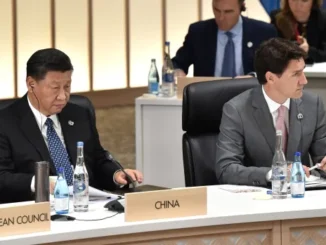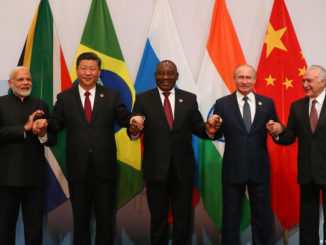
12 AM CET- UNHCR: Over 110 million people are forcibly displaced globally
According to the UNHCR’s new Global Trends in Forced Displacement 2022 report, the number of forcibly displaced people worldwide has reached an all-time high. At the end of 2022, 108.4 million people were forced to leave their homes because of war, persecution, violence, or human rights abuses. The UN says this figure stands at around 110 million today.
The acceleration and rapid growth of this figure is a clear sign of a real problem of the current time. In just one year, 5.7 million refugees have been forced to flee Ukraine, a number that in the past would have taken years to reach. However, the origin of these frightening figures is not attributed to the “full-scale” war in Ukraine only; other conflicts around the globe and climate upheavals have also led to dramatic increases in the number of forcibly displaced people globally.
Alongside these data, the UNHCR’s report also draws attention to the countries that have taken most responsibility for refugees. The majority of refugees, 76%, are in fact hosted by low- and middle-income countries, which do not dispose of adequate funding for displacement and to support them.
3 PM CET – Google Breached EU Antitrust Laws, the Commission Says
Google had been accused by the EU Commission of violating EU antitrust regulations by distorting competition in the advertising technology sector.
“Our preliminary concern is that Google may have used its market position to favour its own intermediation services. Not only did this possibly harm Google’s competitors but also publishers’ interests, while also increasing advertisers’ costs,” said Margrethe Vestager, the Commission’s Executive Vice-President in charge of competition policy. “If confirmed, Google’s practices would be illegal under our competition rules.”
These preliminary findings highlight Google’s alleged anti-competitive behavior, as the company seems to have abused its dominant positions by favoring its own AdX ad exchange platform. Google now has the opportunity to respond to the charges and present its defense. The European Commission will carefully consider all arguments before reaching a final decision.
This is not the first time Google has been accused of breaching European antitrust laws; the company has fought such accusations four times already. This time, if Google is found guilty, it could face substantial fines and be required to make changes to its advertising technology practices.
1 PM CET – Toyota shareholders reject proposal to accelerate the green transition
In a general meeting held today, Toyota shareholders voted against a proposal demanding better performance on climate change. The rejected proposal aimed to push Toyota to set more ambitious targets for reducing emissions and accelerating the shift towards EVs. It was brought by a Danish investment fund with the support of the Norwegian financial services company and a Dutch pension investment company.
However, the majority of shareholders supported the company’s current strategy, which includes a gradual approach to carbon neutrality and a focus on developing hydrogen fuel cell technology alongside EVs. After the voting was completed and the rejection approved, the shareholders even applauded the decision and Toyota’s President, Akio Toyoda, expressed his gratitude for the support.
The decisions taken by the automotive company have come under much criticism from environmentalists in recent years, but the shareholders under Toyoda’s leadership seem to be succeeding in pursuing their own approach of reducing carbon emissions without sacrificing profits.
1 PM CET – EU Parliament approves landmark AI Act
The EU AI Act, a landmark legislation to regulate artificial intelligence, has just been approved by the European Parliament. As EP President Roberta Metsola proudly stated at a press conference following the vote, the legislation to manage risks and develop lawful use of AI “will with no doubt be setting the global standards for years to come.”
This vote, one of the co-leads of the AI Act Dragoș Tudorache says, holds immense significance, potentially making it one of the most crucial files of this parliamentary term. “It’s the first piece of legislation of this kind worldwide, which means that the EU can lead the way in making AI human-centric, trustworthy and safe,” he said.



